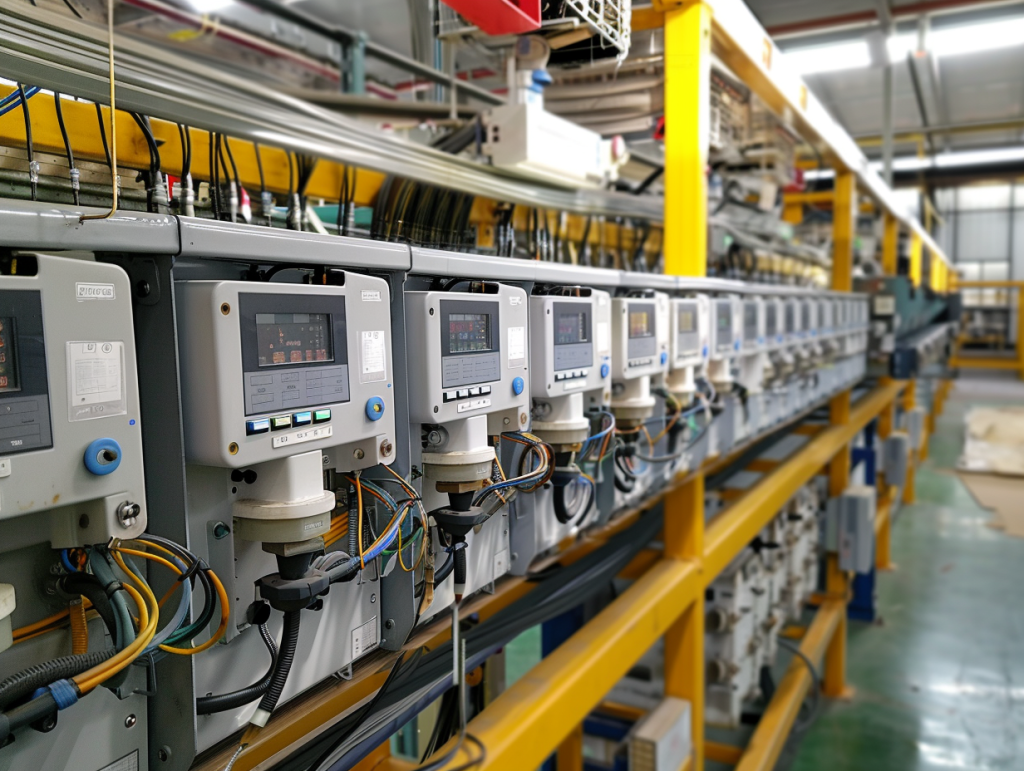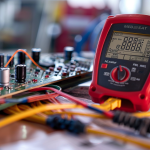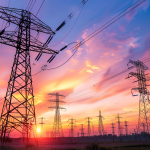Understanding Electricity Meters
An electricity meter is a device that measures the amount of electrical energy consumed by a residence, business, or electrically powered device. These meters are crucial for billing purposes and for monitoring energy usage. Different types of electricity meters are available to suit various consumer needs and technological advancements.

An electricity meter measures the amount of electric energy consumed by a building, business, or electric-powered device, using various technologies to provide accurate readings for billing and monitoring purposes.
Key Functions of an Electricity Meter
1. Energy Measurement
The fundamental function of an electricity meter is to measure the amount of electrical energy consumed, typically expressed in kilowatt-hours (kWh).
2. Monitoring and Analysis
Modern electricity meters can provide detailed insights into energy consumption patterns, helping users understand their usage and identify opportunities for energy efficiency.
3. Billing
Electricity meters provide precise data that utility companies use to generate accurate bills for consumers based on their energy usage.
Types of Electricity Meters
1. Electromechanical Meters
Overview
The traditional type of electricity meter is the electromechanical meter, also known as an analog meter. It uses a rotating disk and mechanical counters to measure and display energy consumption.
Features
- Rotating Disk: Spins at a speed proportional to energy consumption.
- Mechanical Counters: Record the total energy used, displayed in kilowatt-hours.
- Established Technology: Reliable with decades of use.
Applications
- Residential and Small Commercial Users: Common in older homes and businesses.
Pros and Cons
- Pros: Simple, reliable, and long-lasting.
- Cons: Lacks detailed consumption data and remote monitoring capabilities.
2. Digital Meters
Overview
Digital meters, or electronic meters, replace the mechanical components with digital displays and electronic circuits, providing more accurate and detailed readings.
Features
- Digital Display: Shows cumulative consumption in a readable format.
- Advanced Measurement: Capable of measuring energy with greater precision.
- Time-of-Use Data: Can track energy use at different times of the day.
Applications
- Residential and Commercial: Used in upgraded systems for more precision.
Pros and Cons
- Pros: More accurate, can store consumption data, and supports various tariffs.
- Cons: More expensive upfront than electromechanical meters.
3. Smart Meters
Overview
Smart meters are the latest advancement, equipped with communication capabilities to provide real-time data to both consumers and utility companies.
Features
- Two-Way Communication: Allows real-time data exchange with utility providers.
- Remote Monitoring: Enables remote data collection and analysis.
- Consumption Insights: Provides detailed information on usage patterns.
Applications
- Advanced Energy Management: Used in smart grids and for detailed consumption tracking.
Pros and Cons
- Pros: Facilitates real-time monitoring, supports dynamic pricing, and can identify outages quickly.
- Cons: Higher initial cost and potential privacy concerns due to data transmission.
4. Prepaid Meters
Overview
Prepaid meters require users to pay for electricity in advance, offering a pay-as-you-go model that provides greater control over energy spending.
Features
- Rechargeable: Users can add credit to their meter through various payment methods.
- Usage Control: Helps in budgeting and preventing debt accumulation.
Applications
- Residential and Rental Properties: Common in rental units and regions with unreliable utility billing.
Pros and Cons
- Pros: No surprise bills, promotes energy efficiency, and helps with budgeting.
- Cons: Inconvenience of needing to top-up credit regularly.
Benefits of Using Electricity Meters
1. Accurate Billing
Electricity meters provide precise readings that ensure consumers are billed accurately for their energy consumption. This transparency helps in trust and fairness between utility providers and consumers.
2. Energy Efficiency
By monitoring energy use, consumers can identify high-usage periods and take steps to reduce their consumption, promoting energy efficiency and cost savings.
3. Peak Demand Management
Advanced meters like smart meters can help identify peak demand periods, allowing utility companies to manage load distribution more effectively and help consumers shift usage to off-peak times.
4. Enhanced Grid Management
Smart meters contribute to the development of smart grids, improving the reliability and resilience of electrical systems by providing real-time data on electricity flow and grid conditions.
Challenges and Considerations
1. Cost
The initial installation and setup of advanced meters like smart meters can be costly. However, these costs are often offset by the benefits of improved energy management and accurate billing.
2. Privacy and Security
With the data transmission capabilities of smart meters, there are concerns related to data privacy and security. Ensuring that robust security measures are in place is crucial to protect consumer data.
3. Technological Compatibility
In regions with older infrastructure, upgrading to advanced meters may require additional investments to ensure compatibility and proper functionality.
Choosing the Right Electricity Meter
1. Type of Consumer
- Residential Users: Digital or smart meters are ideal for providing detailed usage insights and improving energy management.
- Commercial Users: Smart meters offer advanced features that can track complex energy usage patterns and aid in peak demand management.
2. Budget
- Cost-Effective Solutions: Electromechanical or basic digital meters can be suitable for those looking for a cost-effective solution.
- Long-Term Savings: Investing in smart meters can offer long-term benefits in terms of energy efficiency and accurate billing.
3. Technological Needs
- Basic Monitoring: For simple energy consumption measurement, electromechanical or digital meters are sufficient.
- Advanced Capabilities: For real-time monitoring, detailed insights, and remote capabilities, smart meters are the best choice.
Conclusion
Electricity meters are crucial tools for measuring and managing electrical energy consumption, offering benefits like accurate billing, energy efficiency, peak demand management, and enhanced grid reliability. With various types available, including electromechanical, digital, smart, and prepaid meters, consumers can choose the best option based on their specific needs, budget, and technological requirements.
Understanding the functions and benefits of different types of electricity meters can help you make an informed decision that maximizes efficiency, cost savings, and overall energy management.
FAQ
- What is an electricity meter?
An electricity meter is a device that measures the amount of electrical energy consumed by a residence, business, or electrically powered device. - How does a smart meter differ from a traditional meter?
A smart meter provides real-time data and two-way communication with the utility provider, offering detailed insights into energy consumption and enabling remote monitoring. - What are the benefits of using a prepaid electricity meter?
Prepaid electricity meters help with budgeting and energy efficiency by requiring users to pay for electricity in advance, preventing unexpected bills and debt accumulation. - Can digital meters measure energy more accurately than electromechanical meters?
Yes, digital meters typically offer more accurate measurements and can store and display detailed consumption data. - Are there any privacy concerns with smart meters?
Yes, the data transmission capabilities of smart meters raise concerns about data privacy and security, necessitating robust security measures to protect consumer information.

